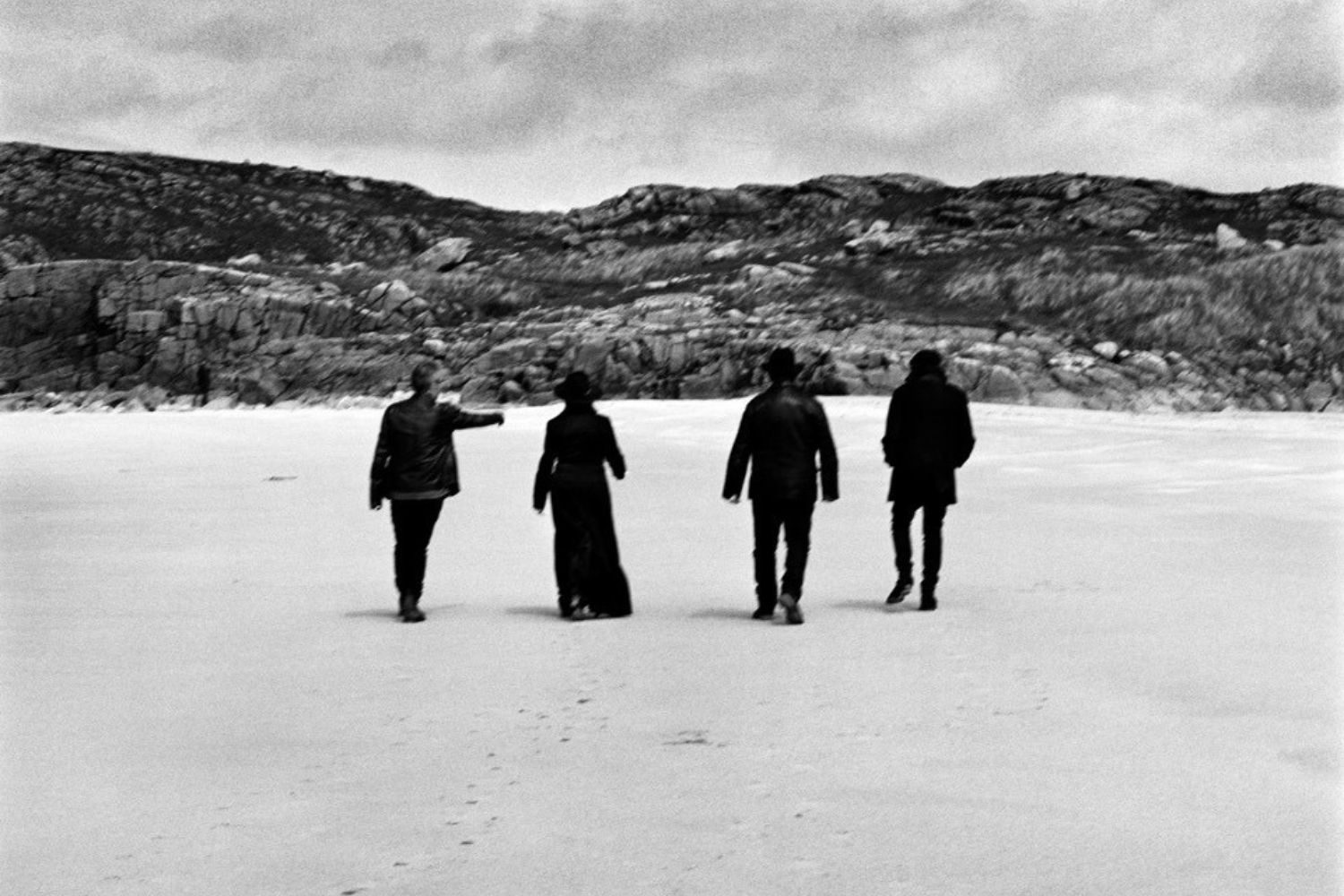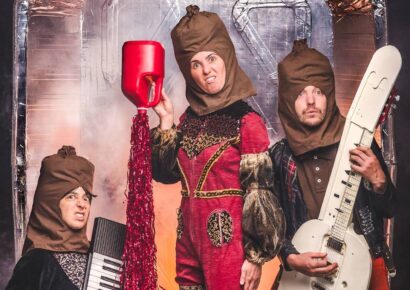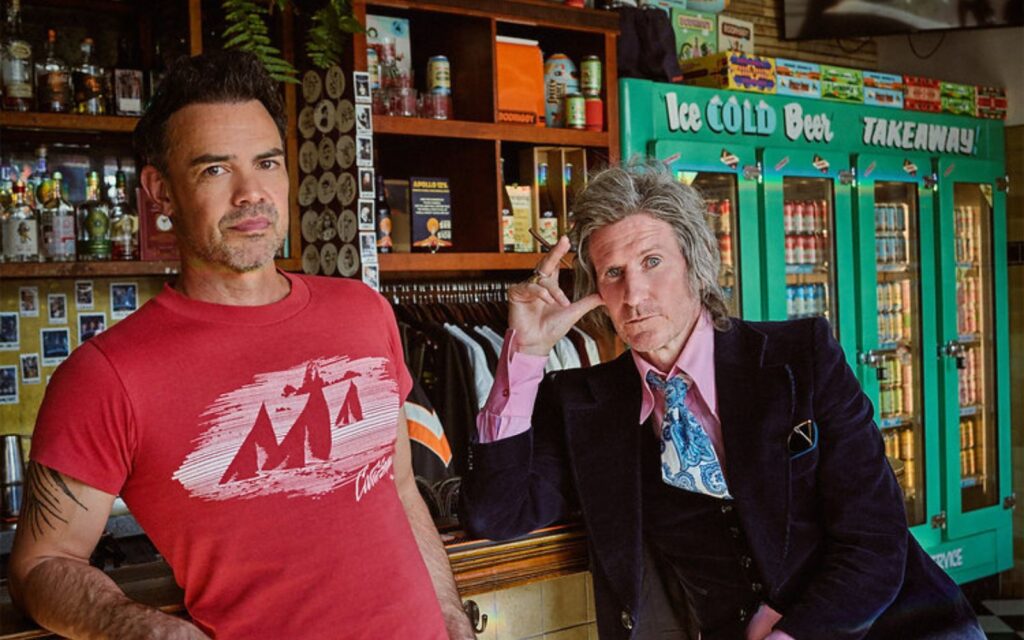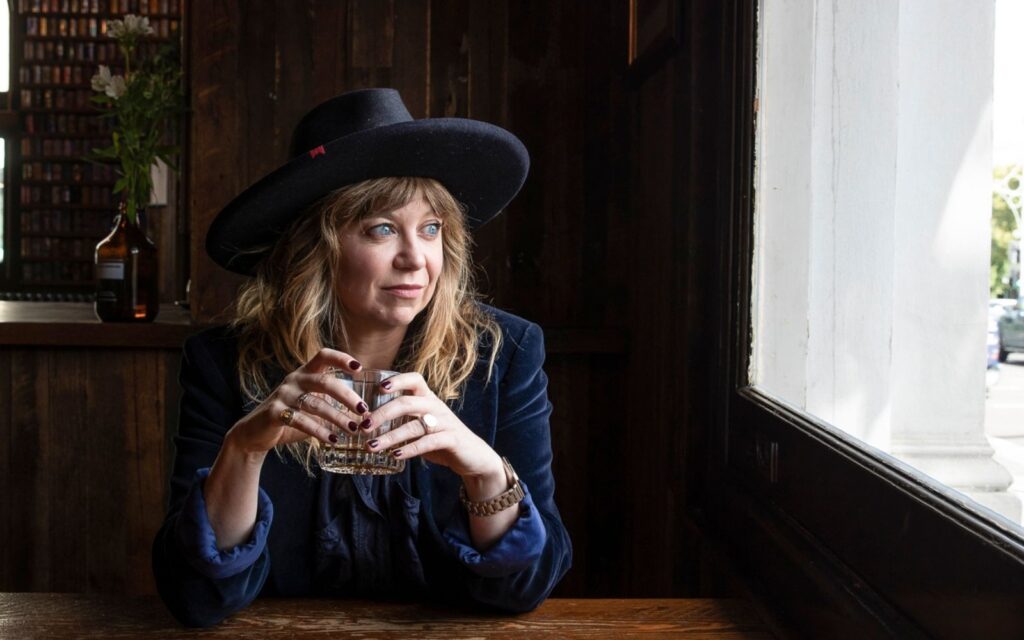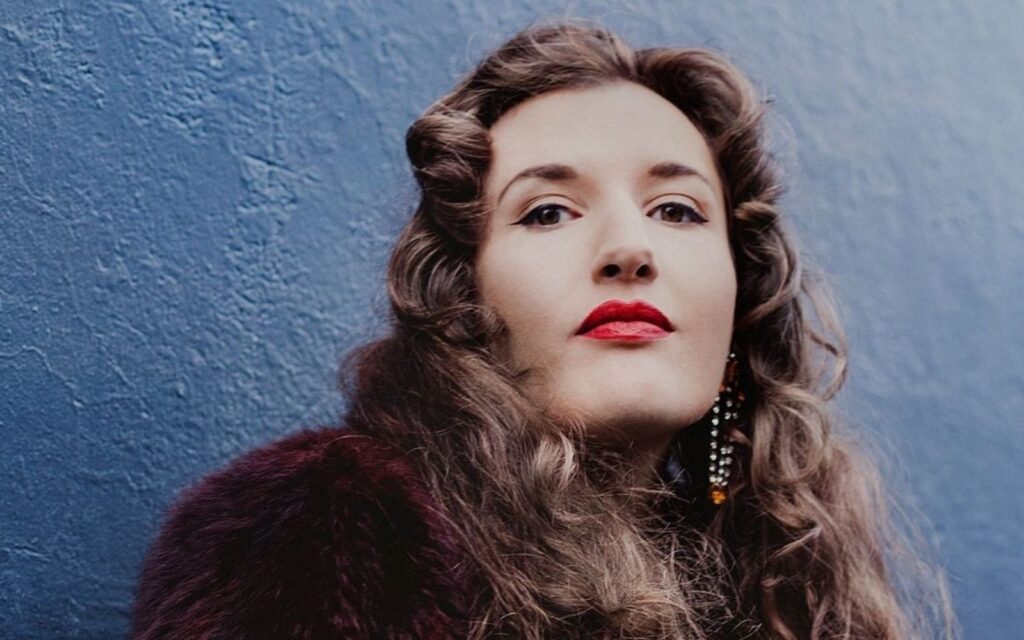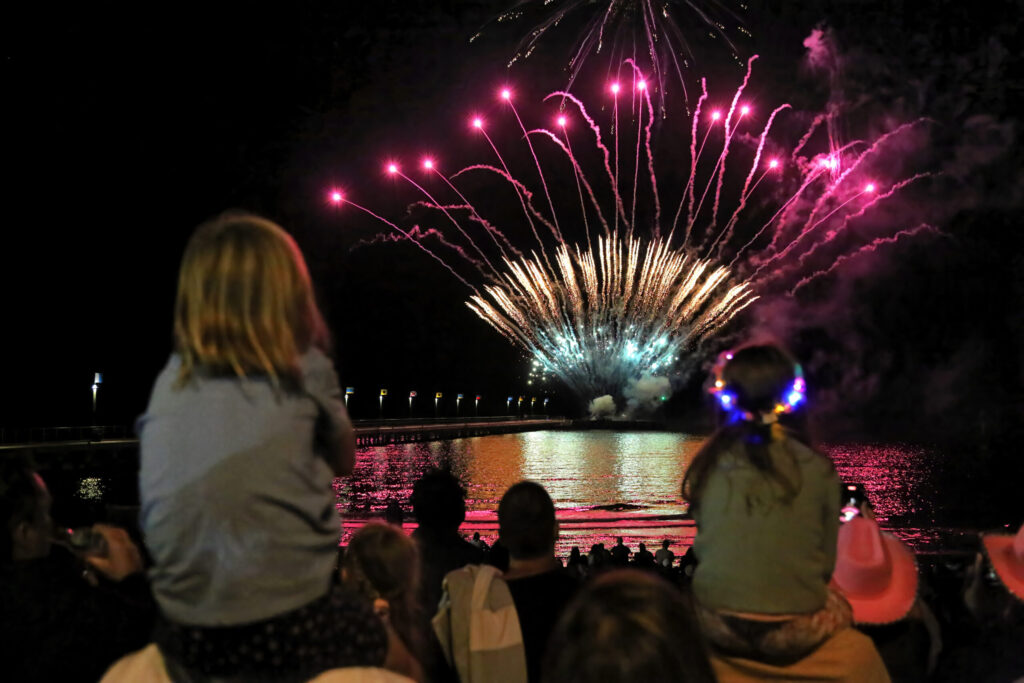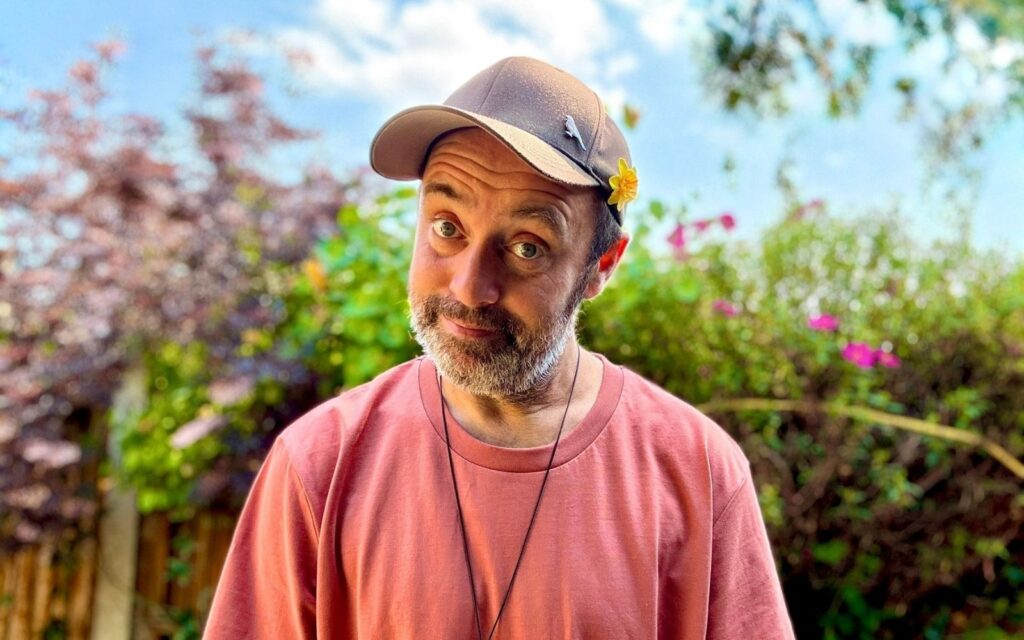It’s St Patrick’s Day, and I’m seeing Clannad at the Palais because I was a Celtic Kid.
A childhood of Enya. Irish dancing lessons. Tin whistle. Books on Gaelic folklore and prayer. The kind of velveteen flowing sleeves I’m seeing on a few of the crowd here tonight. I’m on the younger end of the audience age scale for Clannad’s In a Lifetime tour. I imagine most people here were part of that first wave of fans who actually witnessed the rise of Clannad – and the entire ‘Celtic’ music movement.
Keep up with the latest music news, festivals, interviews and reviews here.
It is difficult to overstate the musical debt owed to Clannad. As the set begins before a packed audience, they curate a musical journey that really is a lifetime. We are led through their beginnings in 1970s County Donegal playing trad (traditional folk music) into the experimental songs that changed the course of multiple genres. The show is more heavily trad than expected, considering how much of their career was spent in that signature Celtic New Age sound – but no one’s complaining.
Perhaps this is because it is a genuine farewell tour. Lead singer, Moya Brennan, has pulmonary fibrosis, and although she can still sing it may progressively impact her capacity to do so. There’s no new album with new songs to spruik (the last album in 2022, In a Lifetime, was an ‘Immersive Collection’ best-of release). And there’s the band itself: Clannad has always been a family affair, shared by Moya’s brothers Ciarán and Pól Brennan (and for a brief time, their sister Enya). But the passing of their uncles and original members, Pádraig and Noel Duggan, has changed the makeup of the band. For this tour, Moya’s children Aisling and Paul Jarvis have joined as vocal and instrumental support. The tour was delayed in 2020, and perhaps the setlist would have been curated differently then. It’s a challenge to compress a lifetime of music into a few hours, and this tour is the end of a long road they’ve travelled together.
I should be able to lose myself and enjoy the moment. They are, after all, charismatic and genuinely engaging performers. They have the chat, the patter, the ability to tie in all these stories seamlessly and even though we’re in the cavernous Palais and the musical swells of synth, string and tumbling drums can be undeniably epic, somehow it feels like an intimate session performed in the corner of a pub.
But as they move through the setlist, there are flashes of recognition for the many ways their musical legacy has branched off in different directions. They play folk songs taught by their grandmother, a Scottish-Gaelic work song, Irish drinking song and lead the crowd in a sing-along of Two Sisters. It’s a tune from their 1976 album Dúlamán, and one I’ve heard more recently in a version covered by Scottish folk singer Alasdair Roberts. From the days of being laughed at playing Gaelic tunes in a pub in the 70s, Clannad paved the way for a proudly Celtic folk scene I know: not just Loreen McKennit’s own ethereal approach, but Lau’s modern-trad, Shooglenifty’s fusion.
The concert is not a chronological journey: they wait until the very end to play the most famous track and best example of the signature sound: their theme for Harry’s Game. Composed for a TV miniseries about The Troubles, sung in Irish Gaelic, with synth and echoing, harmonious vocal layers, it was an unexpected UK chart hit. They also play Newgrange, another astonishing sound that captivated global audiences. An otherworldly tale of druids and magic circles, carried by chants and echoes, soaring synth and a trad undercurrent of guitar and percussion.
The Scot I’ve brought with me for the show has more than a passing familiarity with the Clannad legacy: a veteran attendee of Glasgow’s Celtic Connections music festival, woad-in-the-wool contemporary trad fan, childhood lover of the Robin of Sherwood TV series (with a BAFTA-winning soundtrack by Clannad), youthful explorer of henges.
He has a take, reproduced with permission:
“They stumbled upon this market of people who believed the Irish are faeries. The Celtic Twilight. It’s the Romantics. It’s Keats. It’s Fraser and The Golden Bough. They could riff off this persistent idea of Celtic mysticism and create a new sound that captured it.
Clannad made progressive music around the old tunes. Their absolute brilliance was in the introduction of synth. And it fits. Like harmonium and bagpipes, synth is a drone instrument that works in folk music. But it took a visionary to actually look at trad and say, let’s go fucking synth.”
He’s absolutely rapt when they finish the first half of the show with four tracks from Robin of Sherwood. They are a stellar example of how Clannad created worlds with their music – in this case, a quasi-historical, pseudo-pagan one. The Korg keyboard synth comes into its own, lifting to an almost choral sound. The sighing vocal harmonies reverberate against an instrumental polyphony in the main theme and Herne, creating a deeply affective, undefined ‘spiritual’ sound distinct from (thought influenced by) Christian musical traditions. Would any fantasy film or TV soundtrack since the 80s have been the same without Clannad? Ethereal electro-trad became shorthand for the otherworld, fantastical, pagan. Even in the delicacy of Lady Marian, harp and sorrowful flute, we hear medieval-inspired musical refrains that fantasy soundtracks, like Howard Shore’s Lord of the Rings trilogy, owe some debt to.
Of course, you can hear the connection to Enya. But Clannad’s impact is more than direct offshoots and successors. It’s the innovation of Celtic sounds, up to later visionaries like Martyn Bennett and his fusion of Scots Gaelic recordings and folk instrumentation with electronic music. There’s influence on pop and alt-rock legends like Sinead O’Connor (anyone else own her Irish folk song album?) and Bono, who recorded In a Lifetime with Clannad in 1986. His own accompaniment is performed by Aisling at the Palais, as “the boy from Dublin couldn’t be here tonight”.
Clannad’s influence is also in the musical counter-argument: the drone-punk of Irish band Lankum, far from delicate, ethereal or sentimental. As my Scot says, You bring up Celtic Twilight with a man from Lankum he’d probably punch you in the face.
While the Pogues might not punch you, their raucous foot-stomping post-trad punk circles back to rough-and-tumble folk roots. Music made not for the beauty of hills or mysteries of henges, but for drinking, dancing and indelicate things. If you’re not at risk of injury during a whirling folk dance, you’re not dancing right.
But as this show is a farewell, Clannad, too, circles back. Returning to the stage for an encore, wearing bright green boas, they give us a hand-clapping folk tune that gets us all on our feet. There’s not much room to dance, but it’s St Patrick’s Day, after all, so we do our best.
It’s a proper send-off. A perfect ending. But looking at the ripples and echoes Clannad have sent out into the world through half a century of song, it’s not really an ending at all.
Listen to Clannad here.
